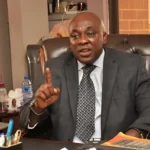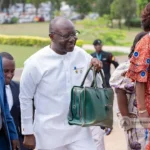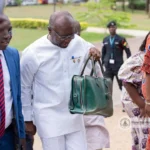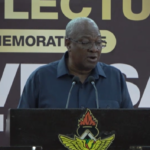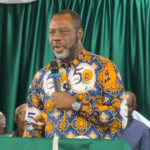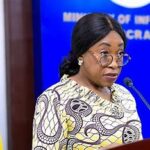Policymakers and academics have stressed the need for the government to adopt sustainable revenue collection measures, effectively manage debt, and improve monetary policy to tackle the country’s economic challenges.
Speaking at the inaugural quarterly economic roundtable co-hosted by the Institute of Statistical, Social and Economic Research and the Ministry of Finance, the Country Director of the International Growth Centre (IGC-Ghana), Dr. Nii Kwaku Sowa, highlighted various avenues for the government to increase revenue, noting the challenges associated with each.
He urged the government to focus on efficient and sustainable revenue collection measures to restore macroeconomic stability.
“If you ask me to give you a hint as to what can be done about revenue, I will say improve the efficiency of collection of the revenue Don’t add one single tax more, it becomes a burden to the Ghanaian. There are too many taxes in this system.
“If you have a business permit, they’ll collect another business permit from you. So too many taxes and levies are killing our businesses, and we should not introduce a new one.
Head of the Department of Economics at the University of Ghana, Professor William Baah-Boateng, who led the first discussion on fiscal policy, cited a lack of political will as the main reason behind the country’s economic crisis.
He also called on the government to commit to prudent expenditure rather than mere expenditure cuts.
“In Ghana, the government is too heavy on the system. Maybe I can put it this way; politics is too heavy on the economy.”
Leading the discussion on debt, the Director of the Institute of Statistical, Social and Economic Research (ISSER), Professor Peter Quartey, touched on debt sustainability measures.
“I think the issue of the debt healing is very crucial. just like Prof. Ackah said, we don’t have one indicator, several of them, we have to look at them, look at our economy. We haven’t used export GDP, we have used growth in export revenue compared to your interest rate because you are going to pay in dollars so if your export revenue is growing by 2% or 3% and your interest rate is 10%, then it tells you, you are going to have issues and we have to borrow responsibly.”
Panellists in the monetary policy discussions addressed the role of monetary policy in maintaining macroeconomic stability.
Delivering the keynote address, the Minister of State at the Finance Ministry, Abena Osei-Asare, expressed the government’s commitment to restoring macroeconomic stability.
“We are committed to implementing stringent fiscal policies to reduce deficits and manage the public debts sustainably. We are also committed to transparency in public finance management, fully implementing the PFM Act and enhancing accountability mechanisms to ensure the efficient and effective use of the public funds.”
The post Govt urged to adopt sustainable measures to restore macroeconomic stability appeared first on Citinewsroom – Comprehensive News in Ghana.


